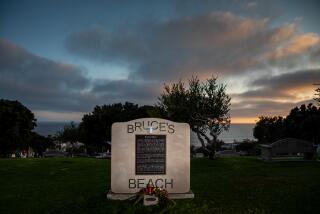Searching for Owners of Millions
- Share via
Question: I am interested in submitting a request for unclaimed property held by the state controller of California. Gray Davis, the controller, was on TV recently explaining that the state has unclaimed property. However, he did not explain the procedure for procuring the unclaimed property. I have written to Mr. Davis but have received no reply.--C.C.P.
Answer: Now where was it that we parked that little old family car? Hill Street? Or was it Broadway? We can take some comfort in the fact that you and I aren’t the only ones who lose or misplace things. Banks, corporations, insurance companies, department stores, airlines--virtually every entity known to man--are equally adept at it, and the villain isn’t so much faulty memories as it is a transient population. Flesh-and-blood people who have money due them are being “lost” every day of the week.
As a consequence, the state controller’s office in Sacramento becomes the “elephants’ graveyard” for assets belonging to owners who have gone astray. According to Karin Caves, Controller Davis’ spokesperson, the assets take almost as many forms as the number of lost people involved: unclaimed inheritances, inactive bank and savings and loan accounts, undeliverable stock-dividend and bond-interest checks, airline-ticket refunds, gift certificates drawn on retail stores for recipients who have disappeared, final paychecks that were never picked up.
Seven years after the party who issued the check (or whatever) has failed to track down the owner, Caves said, the money must be turned over to the state controller’s office.
“Whatever form the assets are in,” she added, “they’re converted into cash so that they can be drawing interest, and we keep them until they’ve been claimed, or forever.” Whichever comes first.
At present, the unclaimed kitty amounts to about $300 million belonging to roughly 750,000 people who have simply disappeared or, at least, can’t be located--that’s one in every 26 Californians.
“On about a fourth of the claims, we simply have a name and no address at all. Most of the others are for people who have moved and left no forwarding address. Some, unfortunately, are simply numbered accounts with no name attached,” Caves said.
As a means of reducing the never-ending pileup of such funds, she said, the controller’s office is pushing for two legislative changes. One would prohibit banks and other savings institutions from accepting a deposit without, at the same time, getting the depositor’s home address. This proposal may come as something of a shock to those of us who had always assumed that such a practice simply made good business sense and was standard operating procedure anyway.
“The other change,” Caves said, “would cut the holding period down from the present seven years to three or four years. By the time seven years have gone by and the assets have been turned over to us, the trail has gotten pretty cold.”
Since last month, when the controller launched the latest campaign (“Claim What’s Yours”) to track down the rightful owners of the orphan money, “We’ve matched up about $500,000,” Caves said. But that still leaves about $299.5 million in homeless funds.
The primary reason for the new drive to whittle the fund down is the fact that, at long last, the 750,000 names for which there are matching checks have been computerized and alphabetized.
“Now, all people have to do is phone us and we can look them up immediately. If there’s no name match, they’ll know it at once, but if there is one we can tell them what it is, how much it is and we’ll mail them a claim form,” Caves said.
About 10% of the Californians who have made inquiries since the “Claim What’s Yours” program began have found money waiting for them, and the average amount recovered is about $300, Caves said.
The big winners to date: a $37,000 inheritance and $61,278 in unclaimed stock.
For the Los Angeles area, call (213) 852-5221, or the state controller’s number in Sacramento is (916) 323-2827; sorry, but the caller pays for these calls.
Happy hunting.
More to Read
Sign up for Essential California
The most important California stories and recommendations in your inbox every morning.
You may occasionally receive promotional content from the Los Angeles Times.













